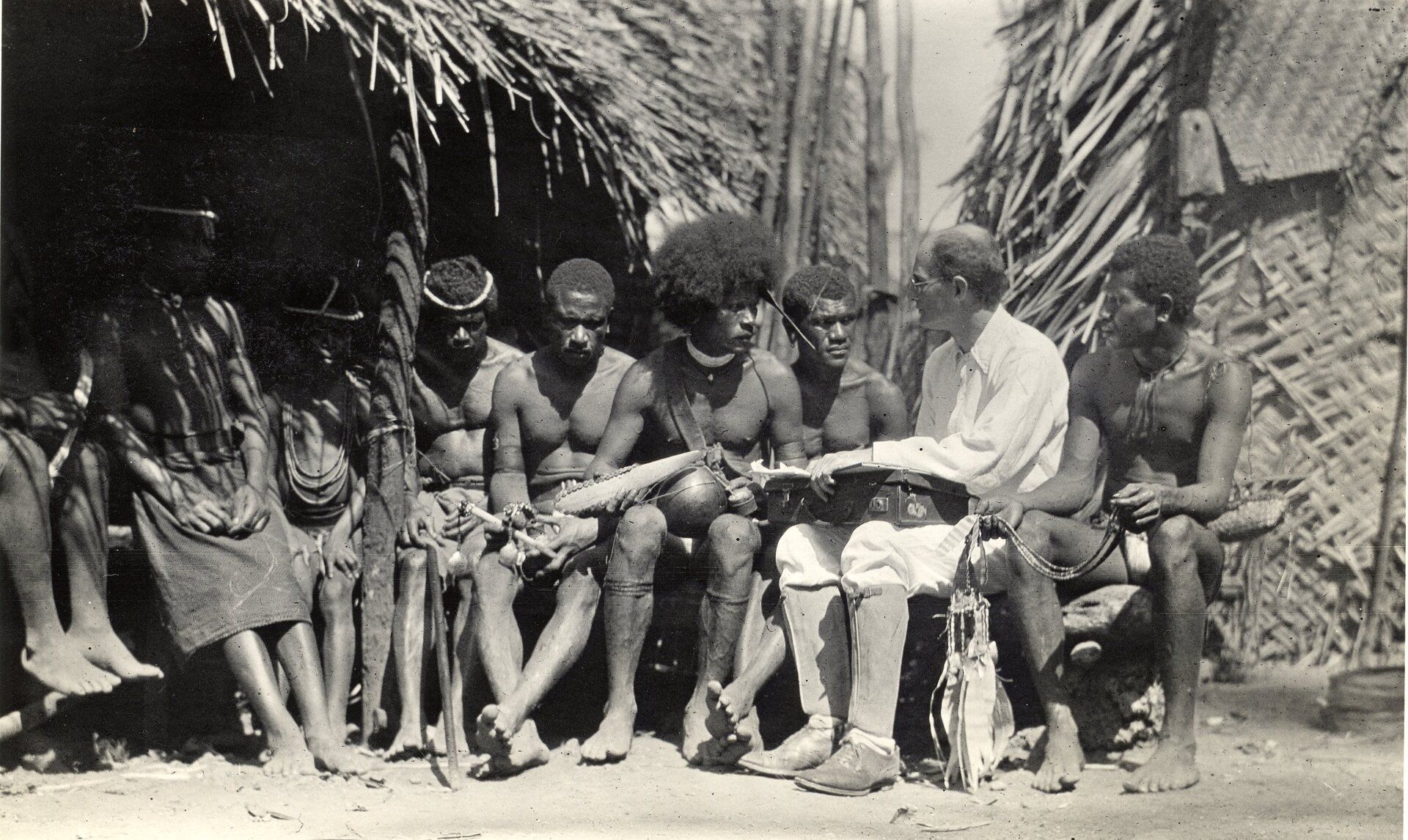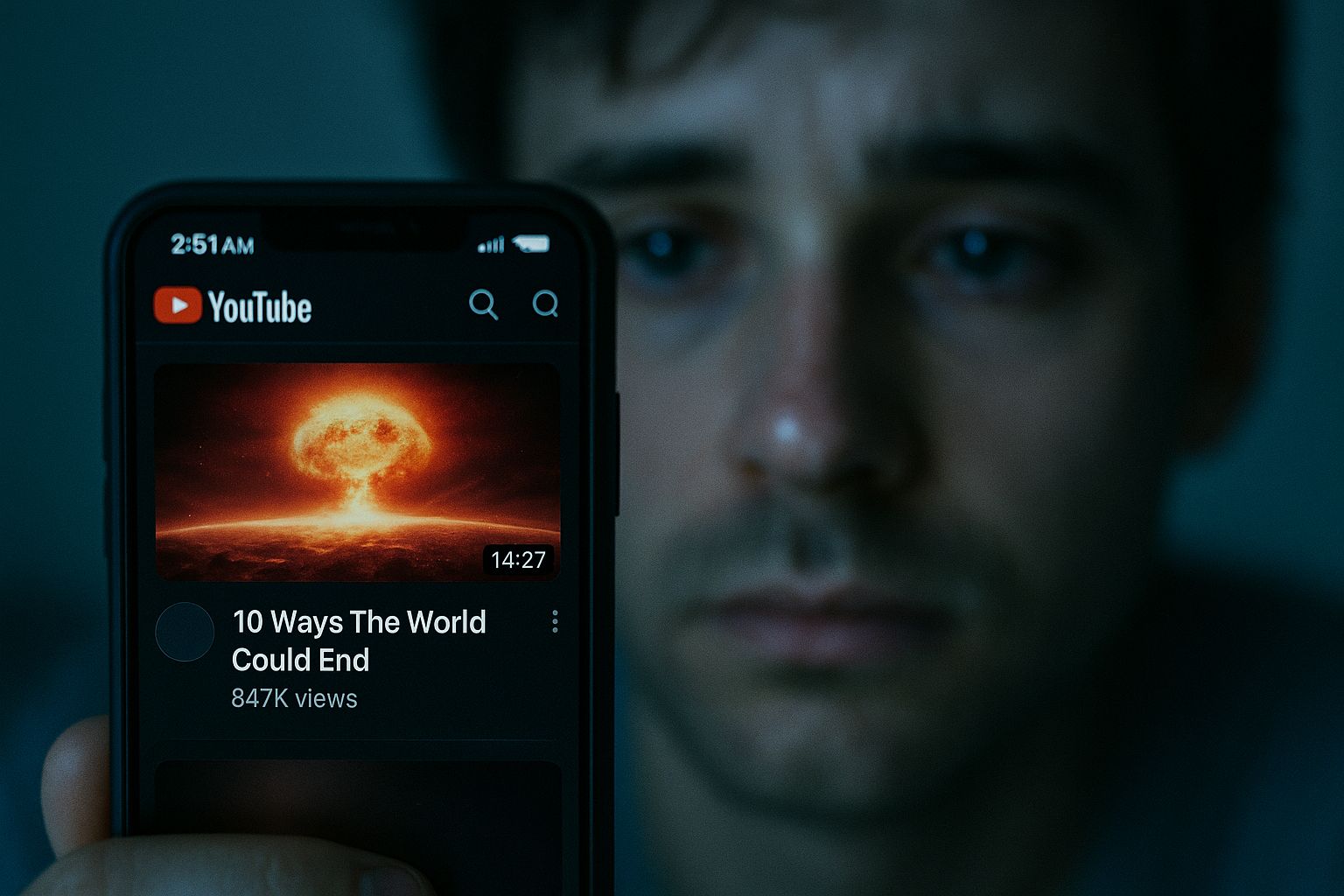🌀 The Decode
You open your phone. Check Instagram. Nothing new. Close it. Thirty seconds pass. You open it again, even though nothing could have changed. Your thumb moves on autopilot, pulling down to refresh. Still nothing. You do it again anyway.
This isn't about staying informed anymore. When you refresh a feed you just checked, you're not looking for news. You're scratching an itch that gets worse the more you scratch it. We call it doomscrolling; the endless consumption of negative updates that leaves us feeling worse than when we started.
Why can't we stop? The answer lies in how our ancient brains interact with modern technology designed to exploit them.
🏺 Field Notes
In the early 1900s, anthropologist Bronisław Malinowski lived among the Trobriand Islanders off Papua New Guinea and noticed something strange. When fishing in the calm lagoon where fish were plentiful, the islanders relied purely on practical skills, not magic. But before heading to the unpredictable open ocean, they performed elaborate rituals, painting canoes and chanting spells.

Malinowski realized the pattern. Magic appeared exactly where control ended. When outcomes were uncertain and stakes were high, ritual gave the islanders a feeling of agency.
We're doing the same thing with our phones. Checking the news obsessively doesn't give us more control. But it creates the illusion of control, the sense that if we stay informed enough, we can somehow manage the chaos. Like Trobriand fishermen chanting before a voyage, we refresh feeds before bed, hoping the ritual will soothe our uncertainty.
The difference? The ocean didn't design itself to keep people anxious.
🧩 First Principles
Danish philosopher Søren Kierkegaard wrote in 1844 that "anxiety is the dizziness of freedom." He meant that having infinite choices can paralyze us. When you can do anything, deciding what to do becomes overwhelming.
The same dizziness happens with infinite scroll. You have access to every news story, every crisis, right now, all at once. Your brain tries to handle this by constantly checking, as if reviewing all the terrible possibilities will reduce them.
But it doesn't work. Research from 2024 involving 800 adults found that doomscrolling evokes existential anxiety: a deep dread when we confront the limits of our existence.
Kierkegaard isn't telling us to stop caring. He's warning us that when overwhelmed by infinite information, we grasp for anything finite to hold onto. We scroll, thinking the next story will make everything make sense. It never is. The feed is designed not to end.
🏙️ The Agora
In 2006, interface designer Aza Raskin created infinite scroll. Frustrated with clicking through Google results, he designed a feature where content loads automatically as you scroll. His goal: make browsing seamless.
Today, Raskin deeply regrets it. He estimates infinite scrolling wastes over 200,000 human lifetimes daily. He's described it this way: "It's as if they're taking behavioral cocaine and just sprinkling it all over your interface."
Social media companies adopted it because it eliminates natural stopping points. With infinite scroll, there's no friction. No end. Just more.
A 2023 research review of about 1,200 adults found that doomscrolling is linked to worse mental well-being and life satisfaction. Platforms know this. But engagement pays the bills. The longer you scroll, the more ads you see. Your anxiety is the business model.
⚡ Signals
📜 Quote: "In an information-rich world, the wealth of information means a dearth of something else...it consumes the attention of its recipients. Hence, a wealth of information creates a poverty of attention."
— Herbert Simon, economist and Nobel laureate, 1971
📊 Study: Researchers studying earthquake survivors in Turkey found that psychological distress increased doomscrolling, which created more anxiety, a feedback loop where checking news to manage fear made the fear worse.
🎨 Artifact: Pull-to-refresh. That simple downward swipe has become a modern divination ritual; we're pulling the slot machine of fate, hoping the algorithm gods will ease our uncertainty.
😂 Meme: Lying in bed at 2 am watching "10 ways the world could end" even though you have a meeting in six hours and you've already seen this video twice.

🤔 Prompt: What's the last thing you learned from doomscrolling that actually improved your life? If you can't remember, what does that tell you?
📝 Reader's Agora
What's your most irrational refresh habit? Email at midnight? Checking the weather app every five minutes? Reply and tell me. I'm collecting these digital rituals, and the best ones might make it into a future issue.
🎯 Closing Note
Here's the thing about doomscrolling: it promises control but delivers the opposite. Every refresh says, "If I just check one more time, I'll finally feel safe enough, prepared enough." But the feed never stops.
The Trobriand Islanders knew when to stop their rituals and get in their boats. They understood magic's limits. We've built an infinite ocean with no shore.
Maybe the real question isn't "what's happening in the world?" but "what am I avoiding by constantly checking?" Your attention is the most valuable thing you own. Where you spend it is where you build your life.
The feed will still be there in the morning. But your life, the one happening while your eyes are glued to the screen, that's happening right now, whether you're watching or not.
Subscribe to Culture Decoded for weekly insights on modern behavior.

